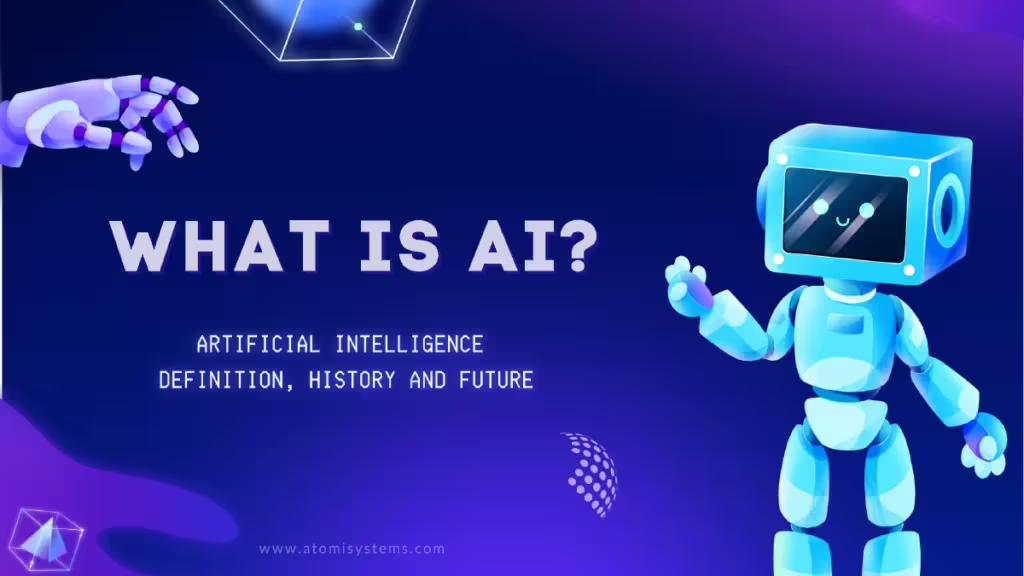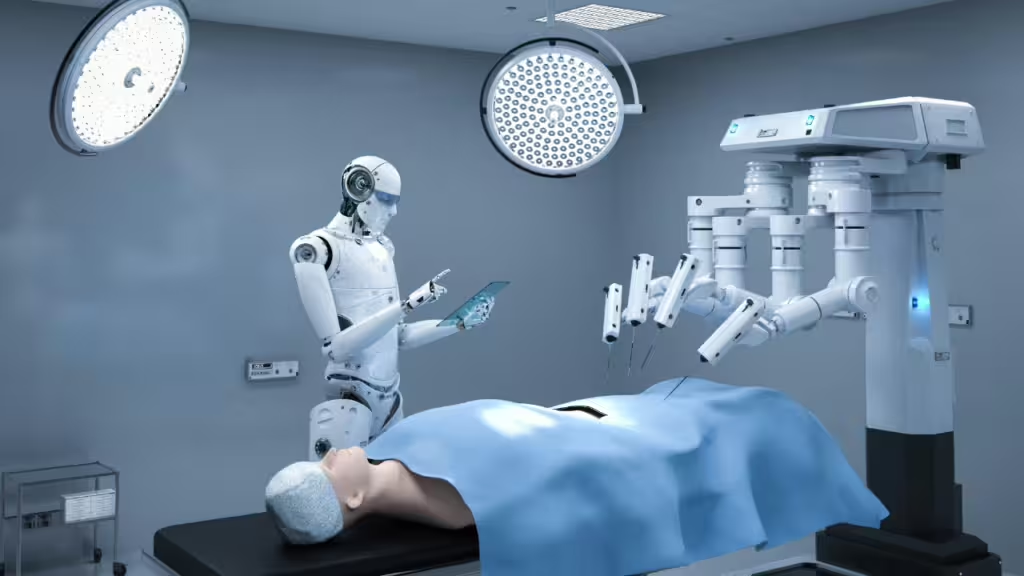Overview of AI (Artificial Intelligence)
AI, or artificial intelligence, is a term we frequently hear, but what does it mean? In this blog, let’s grab an overview of AI with the definition, history, and its future impact.
There is no doubt that artificial intelligence (AI) is one of the hottest buzzwords in technology today. It is an ever-evolving force that is continuously reshaping our world in profound ways. This transformative technology has gotten into almost every facet of our lives, from the devices we use daily to the industries that power our economies. As we look to the future, AI has the potential to help solve big problems like climate change, and energy issues, use resources wisely, and make healthcare fair for everyone. The impact of AI on the world is a constantly evolving narrative. Its transformative potential knows no bounds, leaving us with a world that is continually and dynamically changed by its presence. Let’s dive deeper into the article for an overview of AI.

What is AI?
AI, which stands for Artificial Intelligence, is a branch of computer science that focuses on creating systems and machines capable of performing tasks that typically require human intelligence. These tasks include understanding natural language, recognizing patterns, solving complex problems, learning from experience, and making decisions.
How about AI History?
There has been a long development in AI history. The foundation for AI was laid in the early 1900s, with the most significant advancements not occurring until the 1950s. Right now, artificial intelligence is important in jobs like figuring out the order of RNA for vaccines and imitating how humans talk. These tasks rely a lot on computer programs and patterns, focusing on understanding, thinking, and generalizing. AI has become even more important with these new ideas, becoming a big deal like never before. It looks like it’s going to stay important in the future too.

We cannot mention robots, chatbots, driverless cars, Google Maps, etc, and yes, ChatGPT, and BingChat – the two AI-powered assistants that can interact and respond to almost all the question types. They are artificial intelligence products. In the next part of the article overview of AI, we’ll walk you through its impacts.
How Will AI Impact the Future?
As we can see, the current advancements in artificial intelligence are progressing exceptionally rapidly. The forthcoming era of AI holds boundless opportunities and practical applications that promise to streamline our daily lives significantly. As a result, it will positively impact humanity’s future. So, what will be the implications of artificial intelligence in the future? Let’s explore now!
AI in Education
AI in education is set to revolutionize the learning process for individuals of all ages. By leveraging machine learning, natural language processing, and facial recognition, AI facilitates the digitization of textbooks, identification of plagiarism, and assessment of students’ emotions. This helps identify those who may be struggling or disengaged. Presently and in the future, artificial intelligence customizes the learning experience to meet the unique needs of each student. The AI-powered presentation & quiz generators like uPresenter can save you tons of time and effort in creating learning content.

Additionally, what do you think about AI robot tutors? Yes, they can assist teachers and help enhance the educational experience and quality of learning.
AI in Healthcare
Scientists are studying how AI can help in medicine. artificial intelligence might make it easier for doctors to diagnose and treat illnesses early. It could also create new ways to treat problems like dementia and cancer. AI might even predict future illnesses by looking at a person’s health history and genes. This can help make plans to prevent problems before they happen.

While the roles of doctors, nurses, scientists, and others will remain indispensable, AI is expected to make our lives easier. It does this by making the information from doctors and health data more useful.
AI in Transportation
We heard about driverless cars or trains, so, what about driverless airplanes?

AI is opening in a transformative era for the transportation sector. Advances in artificial intelligence are shaping the present and future of transportation. They are especially influencing the groundbreaking development of applications for autonomous vehicles. As AI technologies mature, we anticipate a comprehensive redefinition of how transportation systems are conceived, designed, and operated. Artificial intelligence will have a big impact, making things like finding the best routes and managing traffic better. It will also improve safety features and how fuel is used, pushing the industry into a new era of efficiency, safety, and sustainability. Combining AI with transportation changes how things move around. It also opens up new ideas for clever, connected city spaces.
AI in Service Industry
The images of robots seamlessly taking over tasks typically handled by assistant staff in airports, cafes, or internal settings are not only visually striking but also hold the promise of enhanced efficiency. These automated entities not only demonstrate precision and effectiveness in their operations but also contribute to saving human energy. The potential impact goes beyond these initial settings, as the trajectory suggests an increasing substitution of human labor by robots and machines.

Looking forward, there is a possibility that customer service representatives, cashiers, and even cooks may be replaced by robots and machines driven by artificial intelligence. This transformative shift in the labor landscape prompts contemplation on the evolving role of automation in diverse sectors and the potential implications it carries for employment dynamics and human-machine collaboration.
AI in Cybersecurity
The increasing frequency of cybersecurity incidents in recent years has raised concerns among many corporate leaders. In response to this growing threat, artificial intelligence emerged as a strong ally in strengthening cybersecurity defenses. AI is crucial for detecting and preventing cyber threats by carefully analyzing network traffic, identifying anomalies, and predicting potential attacks. Its capabilities go beyond traditional methods, allowing for advanced threat detection and response mechanisms that greatly improve the overall security of systems and data. As businesses navigate the changing landscape of cyber threats, integrating artificial intelligence into cybersecurity strategies becomes a vital step in proactively protecting against a wide range of risks and vulnerabilities.

As such, the role of artificial intelligence is rapidly evolving, shaping various aspects of our lives and industries. From revolutionizing healthcare and transforming transportation to enhancing cybersecurity and simplifying daily tasks, AI’s impact is both profound and diverse.
Final Words
That’s an overview of AI. Begin with the question “What is AI”, then you walk through the history and the future of AI in our lives. As we look to the future, the potential applications of artificial intelligence seem boundless, promising unprecedented advancements in technology, efficiency, and problem-solving.

However, ethical considerations, responsible development, and thoughtful integration into society will be crucial to harnessing the full benefits of AI while navigating potential challenges. The journey into the future of AI holds exciting possibilities, encouraging us to embrace innovation responsibly and adapt to a world where the collaboration between humans and intelligent machines becomes increasingly knit.
See also:

